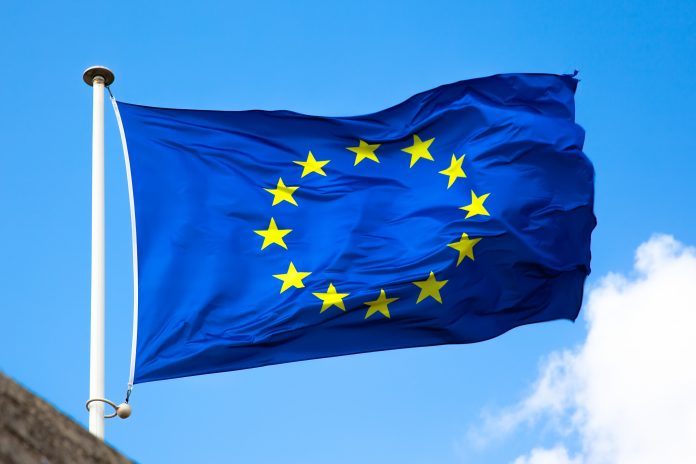While there is good reason to support Europe’s start-up entrepreneurs, business transfers need to be given equal attention in Europe’s path to recovery and growth
Compared to start-ups, successfully transferred businesses perform better in terms of survival, turnover, profit, innovativeness and employment.
Every year in Europe, around 450 000 firms – employing a total of 2 million people – are transferred to new owners. As Europe’s population ages, the number of entrepreneurs planning to hand over their businesses to new owners is increasing. Furthermore, the current turmoil and unpredictability in the business environment will likely speed up transfer plans for many businesses in Europe.
Simultaneously, it is increasingly difficult for many entrepreneurs to find a successor within their family, thus businesses must more often be transferred to third parties. This can be a more time-consuming process, for which small business owners, in particular, are often insufficiently prepared. In addition, some entrepreneurs close their companies without even trying to sell them.
In fact, it is estimated that every year around 150 000 businesses are at risk of not being transferred successfully, which jeopardises around 600 000 jobs. Successful business transfers not only safeguard existing jobs but also create new employment as well as prospects for employees in terms of job continuity and professional development. They also preserve the livelihood and economies of rural and mono-industrial areas, representing the vast majority of the total EU land area.
The varying business transfer landscape in Europe leaves room for improvement
The European Economic and Social Committee (EESC) recently adopted an opinion, Business transfers as promoters of sustainable recovery growth in the SME sector (INT/982), where it suggests that the EU and the Member States should give business transfer promotion a stronger role in recovery and growth policies. The Committee is convinced that increasing the number of successful transfers would immediately benefit employment, business continuity and the European economy. The EESC, representing organised European civil society, also drafted a list of policy recommendations for the European Commission and the Member States to improve their policies on transfer promotion.
Business transfers have been a part of EU entrepreneurship policy since the early 1990s, and transfer ecosystems have been developed to varying degrees in many EU Member States. Despite the long-standing work at both EU and national levels, a recent study by the Seinäjoki University of Applied Sciences shows that the level of attention, the current overall functionality of the business transfer ecosystem and the scope of promotion measures vary significantly between the Member States. Although the available data are too fragmented and incomplete to make a comprehensive comparative analysis about transfers of micro-, small and medium-sized enterprises (MSME) in Europe, it is clear that there is room for policy action to increase the number of successful transfers in Europe.
The right policy measures can support successful business transfers
One of the key action points that the EESC is recommending is to increase awareness-raising activities on business transfers. The earlier entrepreneurs prepare for a transfer, the more successful it tends to be. An example of a successful awareness-raising activity is holding business transfer promotion weeks, which are already organised in some EU Member States, such as Finland and Belgium. Moreover, establishing national transfer stakeholder forums representing both public and private stakeholders can provide a systematic, long-term and more cost-efficient approach to business transfer promotion. Eventually, cross-border dialogue, promoted by the European Commission, could be established between various national forums to exchange best practices in transfer promotion.
Being a start-up entrepreneur is often perceived as a more attractive way of becoming an entrepreneur than acquiring an existing business. Therefore, the Committee calls for incentives to be developed to transfer small firms to young entrepreneurs, such as awareness-raising activities, advisory services, mentoring and access to finance. Furthermore, know-how on buying a firm and on succession should be part of entrepreneurship education in secondary and higher education.
The EESC has recognised that funding remains an obstacle for successful transfers as most transfers require external funding. The EESC strongly encourages each Member State to ensure that there are financial institutions available to support MSME business transfers, for instance, by assisting with bank loan collaterals. To match buyers with sellers, online business transfer platforms should be developed in all EU Member States, and they should be accessible to micro- and small firms. Moreover, links between platforms in different Member States could enhance cross-border transfers of MSMEs.
To fill in data and knowledge gaps regarding transfers in Europe, a regular review of the business transfer situation should be developed, for instance, in the form of an EU-wide transfer barometer that would also provide input for evidence-based policymaking.
Successful business transfers are a short-cut to entrepreneurship
A change in ownership is a natural part of the lifecycle of a company. It provides a shortcut to entrepreneurship, with ready-made products and services, customers, turnover and skilled employees. A successful change of ownership often results in a more resilient, innovative and competitive business. Furthermore, when businesses with new owners adopt more green and digital business models, transfers contribute to the green and digital transition in the MSME sector.
A common goal for Europe should be to make acquiring an existing business an equally attractive and well-known opportunity for a start-up entrepreneur. This can only be achieved if the EU and the Member States put business transfer promotion at the heart of their recovery, growth and entrepreneurship policies. Even though the final responsibility for transfers will always lie with the entrepreneurs themselves, everyone has a role to play in fostering business transfer ecosystems: the EU, national, regional and local governments and policymakers, civil society and business organisations, financial institutions and academics, to name just a few.
This piece was written and provided by Mira-Maria Kontkanen, Rapporteur for the EESC opinion on Business transfers as promoters of sustainable recovery growth in the SME sector Member, European Economic and Social Committee (EESC), Employers’ Group (Group I).











